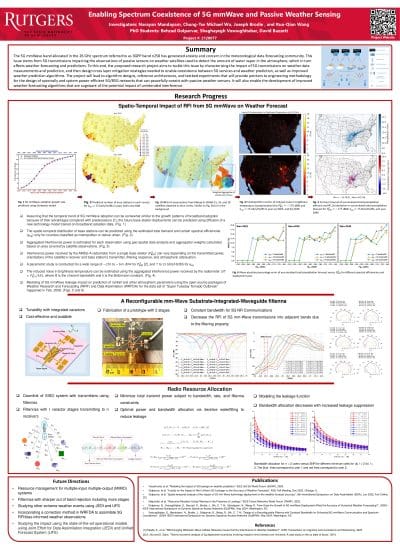Authors
Narayan Mandayam, Chung-Tse Michael Wu, Joseph Brodie, Ruo-Qian Wang, Behzad Golparvar, Shaghayegh Vosoughitabar, and David Bazzett
Abstract
The 5G mmWave band allocated in the 26 GHz spectrum referred to as 3GPP band n258 has generated anxiety and concern in the meteorological data forecasting community. This issue stems from 5G transmissions impacting the observations of passive sensors on weather satellites used to detect the amount of water vapor in the atmosphere, which in turn affects weather forecasting and predictions. To this end, the proposed research project aims to tackle this issue by characterizing the impact of 5G transmissions on weather data measurements and prediction, and then design cross layer mitigation strategies needed to enable coexistence between 5G services and weather prediction, as well as improved weather prediction algorithms. The project will lead to algorithm designs, reference architectures, and testbed experiments that will provide pointers to engineering methodology for the design of spectrally and system power-efficient 5G/B5G networks that can peacefully coexist with passive weather sensors. It will also enable the development of improved weather forecasting algorithms that are cognizant of the potential impact of unintended interference.

